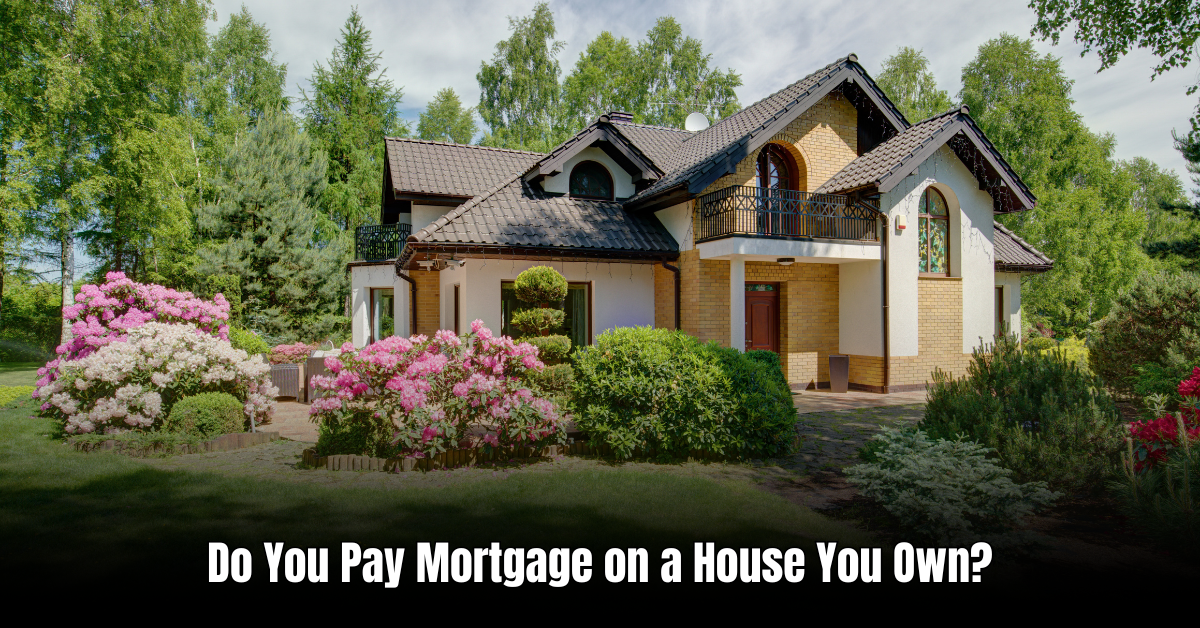When it comes to homeownership, the idea of paying a mortgage on a house you already own may seem contradictory. After all, the entire purpose of having a mortgage is to finance the purchase of a property. In most cases, this is true, but there are situations where homeowners may still need to pay a mortgage even after owning their house outright.
Understanding Mortgage Basics
Before we delve into this topic, let’s quickly recap some mortgage basics. A mortgage is a loan that individuals use to purchase a home or other real estate. The loan is secured by the property itself, meaning that if the borrower fails to make payments, the lender has the right to foreclose and take possession of the property.
A traditional mortgage typically has a term of 15 to 30 years, during which the borrower makes monthly payments that include both principal and interest. Over time, the borrower pays off the loan, eventually owning the property outright.
When You Own Your House Outright
Once you’ve paid off your mortgage, you officially own your house outright. This means that you no longer have any outstanding loan balance, and the property is entirely yours. Congratulations!
However, even though you own your home, there are still various expenses associated with homeownership that you’ll need to continue paying, such as property taxes, homeowner’s insurance, and maintenance costs. These expenses are separate from your mortgage and are your responsibility as the homeowner.
Home Equity Loans and Lines of Credit
One reason homeowners may find themselves paying a mortgage on a house they own is if they decide to take out a home equity loan or line of credit. These types of loans allow homeowners to leverage the equity they have built up in their homes to access additional funds.
A home equity loan is a lump sum that is borrowed against the equity in your home. It is repaid over a fixed term, typically with a fixed interest rate. On the other hand, a home equity line of credit (HELOC) allows borrowers to access funds as needed, similar to a credit card, up to a predetermined borrowing limit.
Both home equity loans and HELOCs involve taking on new debt, which means borrowers will once again have a mortgage to pay. The difference is that this time, the loan is not used to purchase the property but rather to tap into its equity for other purposes.
Mortgage Refinancing
Another scenario where homeowners may end up paying a mortgage on a house they already own is through the process of mortgage refinancing. Refinancing involves obtaining a new mortgage to replace the existing one.
There are a few reasons why homeowners choose to refinance their mortgages:
- To obtain a lower interest rate
- To switch from an adjustable-rate mortgage to a fixed-rate mortgage, or vice versa.
- To access cash through a cash-out refinance
When refinancing, homeowners essentially pay off their existing mortgage and take on a new loan. This means they will once again have monthly mortgage payments, even though they may have already owned their home outright.
The Benefits of Paying Off Your Mortgage
While there are situations where homeowners might continue paying a mortgage even after owning their home, it’s important to remember the benefits of paying off your mortgage entirely:
| Benefits | Explanation |
|---|---|
| Reduced financial burden | Eliminating mortgage payments can free up funds for other expenses and financial goals. |
| Peace of mind | Knowing that your home is completely paid off provides a sense of security and peace of mind. |
| Equity and wealth | With no mortgage balance, your home represents a significant asset that adds to your overall net worth. |
Ultimately, the decision of whether to continue paying a mortgage on a house you own depends on your financial goals and circumstances. While there may be valid reasons for doing so, many homeowners aim to eliminate their mortgage and enjoy the freedom of owning their home outright.
In Conclusion
Owning a home outright means that you no longer have an outstanding loan balance or a traditional mortgage. However, there are instances where homeowners may still need to pay a mortgage.
These situations include taking out home equity loans or lines of credit, as well as refinancing your existing mortgage. It’s essential to understand the terms and implications of these financial decisions before proceeding.
Remember, paying off your mortgage provides financial freedom, peace of mind, and increased equity in your home. It’s always a good idea to evaluate your individual circumstances and consult with a financial professional to determine the best course of action for your situation.
Frequently Asked Questions: Do You Pay Mortgage On A House You Own: The Ins And Outs
Faq 1: Do You Have To Pay A Mortgage On A House You Own?
Yes, you still need to pay a mortgage on a house you own until it is fully paid off.
Faq 2: Can You Stop Paying The Mortgage If You Own The House?
No, even if you own the house, you are still obligated to pay off the remaining mortgage.
Faq 3: What Happens If You Don’t Pay The Mortgage On A House You Own?
If you don’t pay the mortgage on a house you own, you could face consequences such as foreclosure or damage to your credit score.
Faq 4: Why Do You Need To Keep Paying A Mortgage On A House You Own?
You need to keep paying a mortgage on a house you own because it is a legal agreement, and failure to make payments can have negative consequences.
Ismail Hossain is the founder of Law Advised. He is an Divorce, Separation, marriage lawyer. Follow him.





Leave a Reply